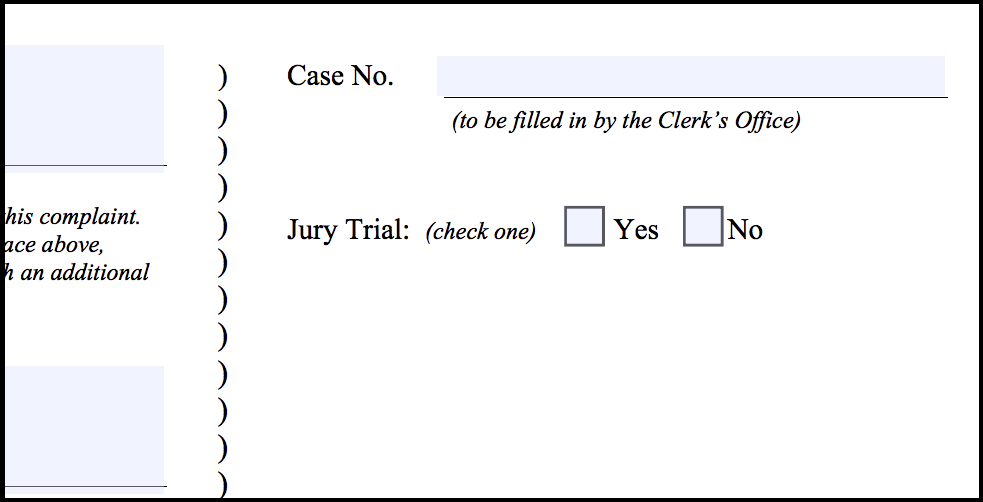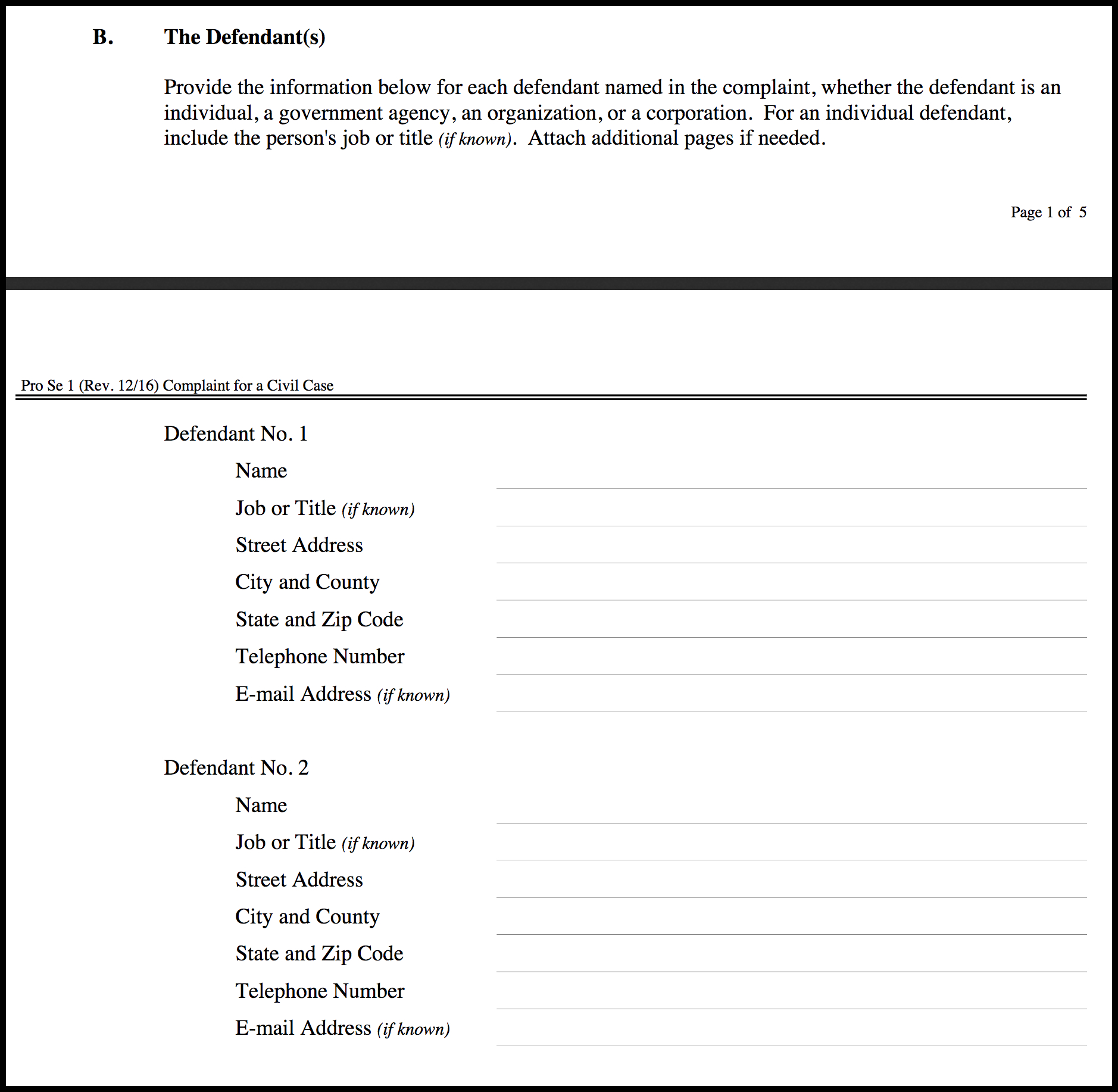So it appears you were reading the Federal Rules of Civil Procedure and when you got to Rule 3 – Commencing an Action you came across the Civil Complaint Forms section of this website before finding this page. Clicking on any of the screenshots found throughout this page will enlarge the image.
*********************************
Step One:
Find the Right Courthouse.
At the top of page one of the official Complaint for a Civil Case form, you’ll see this:
To find out which district court is nearest you, use the
United States Courts’ Court Locator.
Also learn all about U.S. district courts.
*********************************
Step Two:
Jury Trial or Bench Trial?
Next, the civil complaint form provides the complainant with the option as to whether or not they want a jury trial:
To help you decide whether or not you’d like to have a jury trial or a nonjury trial (a trial before a judge known as a “bench trial“):
*********************************
Step Three:
Identifying Involved Parties:
Within the pre-trial case building section of this site, you likely filed some records requests which helped you to identify the various natural persons, artificial persons, and other organizations directly and/or indirectly involved in your case who may be potentially listed as defendants.
Screenshot of Bottom of Page 2 and Top of Page 3 on the Civil Complaint form:
Step Four:
Diversity of Citizenship or Federal Question?
At the top of page 3 of the of the civil complaint form we find the next part that merits explanation. Federal courts are courts of limited jurisdiction (limited power). Generally, only two types of cases can be heard in federal court cases involving a federal question and involving diversity of citizenship of the parties. Screenshot from civil complaint form:
Learn More:
Federal-Question Jurisdiction – the exercise of federal-court power over claims arising under the U.S. Constitution, an act of Congress, or a treaty. Federal laws are generally codified within the United States Code (see Types of Crimes and corresponding laws).
Diversity Jurisdiction – the jurisdiction of a federal court over all civil actions involving diversity of citizenship (wherein the parties involved are from different states (or foreign states)) and the matter in controversy exceeds the sum or value of $75,000, exclusive of interest and costs.
Damage Assessment
Amount in Controversy:
On page 4, under section “B. If the Basis for Jurisdiction Is Diversity of Citizenship” (shown on page 3), you will see reference to the “amount in controversy”, as shown:
To find the “amount in controversy, you will need to assess the damages, or “how much money is owed to you in order for you to recovery from your losses.” There are many legal terms to become acquainted with when referencing damages; it is best to simply go through them all and write down all the types of damages that might apply to your case; to help with this, we’ve organized all the definitions you will need onto one page:
Step Six:
More Coming Soon.
*********************************
References:
Disclaimer: All material throughout this website is pertinent to people everywhere, and is being utilized in accordance with Fair Use.
[1]: United States Courts, Federal Rules of Civil Procedure (2017): www.uscourts.gov/rules-policies/current-rules-practice-procedure/federal-rules-civil-procedure
[2]: Black’s Law Dictionary Deluxe Tenth Edition by Henry Campbell Black, Editor in Chief Bryan A. Garner. ISBN: 978-0-314-61300-4
- Ballantine’s Law Dictionary Legal Assistant Edition by Jack Ballantine (James Arthur 1871-1949). Doctored by Jack G. Handler, J.D. © 1994 Delmar by Thomson Learning. ISBN 0-8273-4874-6.
******************************************
Federal Rules of Civil Procedure Simplified
All Federal Rules of Procedure Simplified
Like this website?
or donate via PayPal:

Disclaimer: Wild Willpower does not condone the actions of Maximilian Robespierre, however the above quote is excellent!
This website is being broadcast for First Amendment purposes courtesy of
Question(s)? Suggestion(s)?
[email protected].
We look forward to hearing from you!





